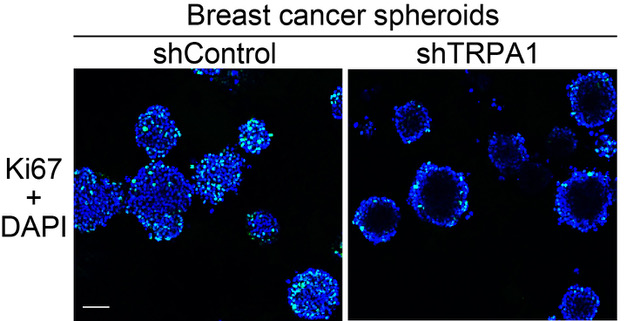
The Brugge lab has shown that the calcium channel protein, TRPA1, aids in tumor survival and has proposed targeting this protein as a potential cancer treatment. In a recent publication in Cancer Cell, the Brugge lab shows how TRPA1, normally used by humans as a sensor for environmental irritants such as wasabi or spicy mustard, is co-opted by tumor cells. Some cancers express TRPA1 in high levels, creating a defense mechanism against reactive oxygen species (ROS), thereby inhibiting programmed cell death and making cancer cells less vulnerable to radiation and chemotherapy. This research adds to a growing body of evidence that cancer cell survival can be improved by anti-oxidants. By further elucidating the biological mechanisms of TRPA1 function, the Brugge lab hopes to gain a better understanding of how this protein could be targeted in clinical cancer treatments. To learn more, visit HMS news.